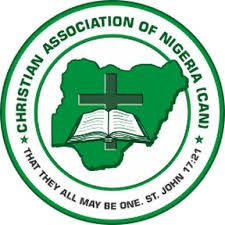
Why I approved payment of N585m into private account – Minister
The end is yet to be seen in the alleged financial corruption scandal rocking the Federal Ministry of Humanitarian Affairs and Poverty Alleviation, as a document emerged that the Minister, Edu Betta allegedly disbursed N585,198,500.00 into a personal account.
According to a viral document signed by Edu directed to the Office of the Accountant-General of the Federation, the Minister instructed the disbursement of N585,198,500.00 to one, Oniyelu Bridget.
The document also showed that the payment of the N585.198 million grant, meant for vulnerable groups in Akwa Ibom, Cross River, Ogun and Lagos states, was made into Oniyelu’s account.
However, reacting to the development, the Special Assistant on Media and Publicity to the Minister, Rasheed Zubair said N585.198 million payment for the vulnerable group followed due process.
He stated that the payment of the grant to the account of an individual, Oniyelu Bridget, was because the fellow currently serves as the Project Accountant of Grants for Vulnerable Groups.
He explained that the payment of the N585.198 million grant was meant for vulnerable groups in Akwa Ibom, Cross River, Ogun and Lagos states.
“For the avoidance, the said N585m was approved, and it is meant to implement grants to vulnerable groups in Akwa Ibom, Cross River, Ogun, and Lagos states.
“We must note that GVG was first launched in Kogi State, where recipients testified. Akwa Ibom and Cross River were launched in December 2023. Kogi already happened in November, and others will be launched in the coming weeks.
“The general public is invited to note that the Renewed Hope Grant for Vulnerable Groups is one of the social intervention schemes of the Federal Government, which the Ministry of Humanitarian Affairs and Poverty Alleviation is implementing.
“Oniyelu Bridget is the Project Accountant for GVG from the Department of Finance, and it is legal in civil service for a staff, the project accountant, to be paid and use the same funds legally and retire the same with all receipts and evidence after the project or programme is completed”, he stated.
Meanwhile, the development caused a stir on social media as Nigerians wondered why a huge sum of the Federal Government’s money would be paid to an individual’s account.
DAILY POST gathered that public sector financial regulations of 2009 prohibit the payment of public funds to the account of a private individual.
Section 713 of the law states, “Personal money shall in no circumstances be paid into a government bank account, nor shall any public money be paid into a private bank account. An officer who pays public money into a private account is deemed to have done so with fraudulent intention.”
Recall that President Bola Ahmed Tinubu barely four days ago suspended the National Coordinator of the National Social Investment Programme Agency, Halima Shehu, an agency under Edu, over alleged financial misappropriation.
Consequently, Halima Shehu was detained and drilled by the Economic Financial Crimes Commission, EFCC, over an alleged N44 billion fraud.
Following an investigation, EFCC froze N30 billion moved from NSIPA’s accounts.
Similarly, a former Minister of the Ministry, Sadiya Umar-Farouq, was invited by the EFCC over a financial scandal allegedly carried out through one contractor, James Okwete.



